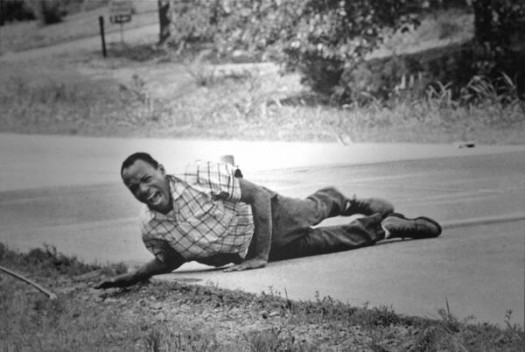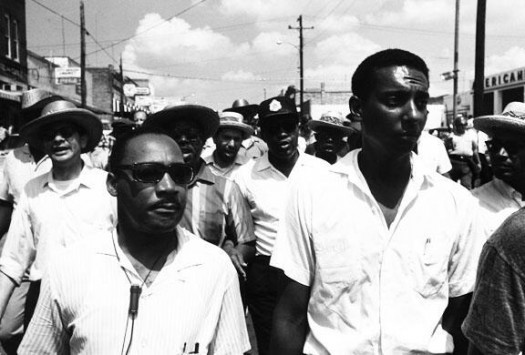Marching Against Fear: Protest and Refusal
There’s a story that Julius Lester tells about James Meredith, who was the first black person to attend and then graduate from the University of Mississippi. He graduated 51 years ago this last month.
In the summer of 1966, Meredith launched a ‘march against fear‘ to encourage black people to vote. His goal was “to tear down the fear that grips the Negroes in Mississippi and…encourage the 450,000 [as voters] in Mississippi.” Lester writes:
“With the announcement black people across the country began crossing Meredith’s name from the list of those in the land of the living. Hustlers began checking whether they could takeout insurance policies on his life, naming themselves as beneficiaries. Ministers looked through their files, searching for old sermons about martyrdom. In a few places florists hurriedly placed orders for funeral wreaths, to be sure they would have enough on hand. They weren’t being cynical. They were black and they knew. Mr. Meredith had announced his death.”
The fears for Meredith’s safety were well-founded. On June 6, he was shot and wounded.
Martin Luther King Jr., Stokely Carmichael and others stepped in to continue Meredith’s ‘March Against Fear‘ and Meredith returned from his hospital bed to complete the last legs of the march.
Lately, I’ve been thinking about marches and protest. I’ve been thinking about how both are out-of-style in some quarters. I’ve been thinking about how important they still are to movement-building. I’ve been thinking about how grateful I am to the unrecognized organizers of marches and protests especially in this historical moment when none of the romance persists and mostly cynicism pervades.
A young person asked me a few weeks ago at a protest march: ‘how many of these have you been to?’ I had to think long and hard: hundreds at least. Marches and protests aren’t ends in and of themselves. I know of no organizers who believe they are. But I have always understood their necessity as one tool in a larger strategy/vision. I believe strongly in the need to publicly assert one’s refusal. I think a lot about the manifestation of refusal. Saying “No”can be incredibly important and powerful. I refuse to go along with this war. I refuse to acquiesce to this state violence. I refuse to be silent. I refuse…
I know that refusal is not enough but it is an important form of protest. As I’ve grown older, I’ve learned that it is also important to join with others to build the world in which I want to live. That has meant embracing “YES” too. But I know that my days of refusal aren’t done. Refusal saved my life in many ways.
I watched a livestream of another night of protest and refusal in Ferguson. I watched and took solace in the young people’s refusal to accept what they see and know is an evasion of accountability in the making. I watched and I started making plans to join in another march; this time in Ferguson where I will stand with others to protest and to refuse to live without our lives.


